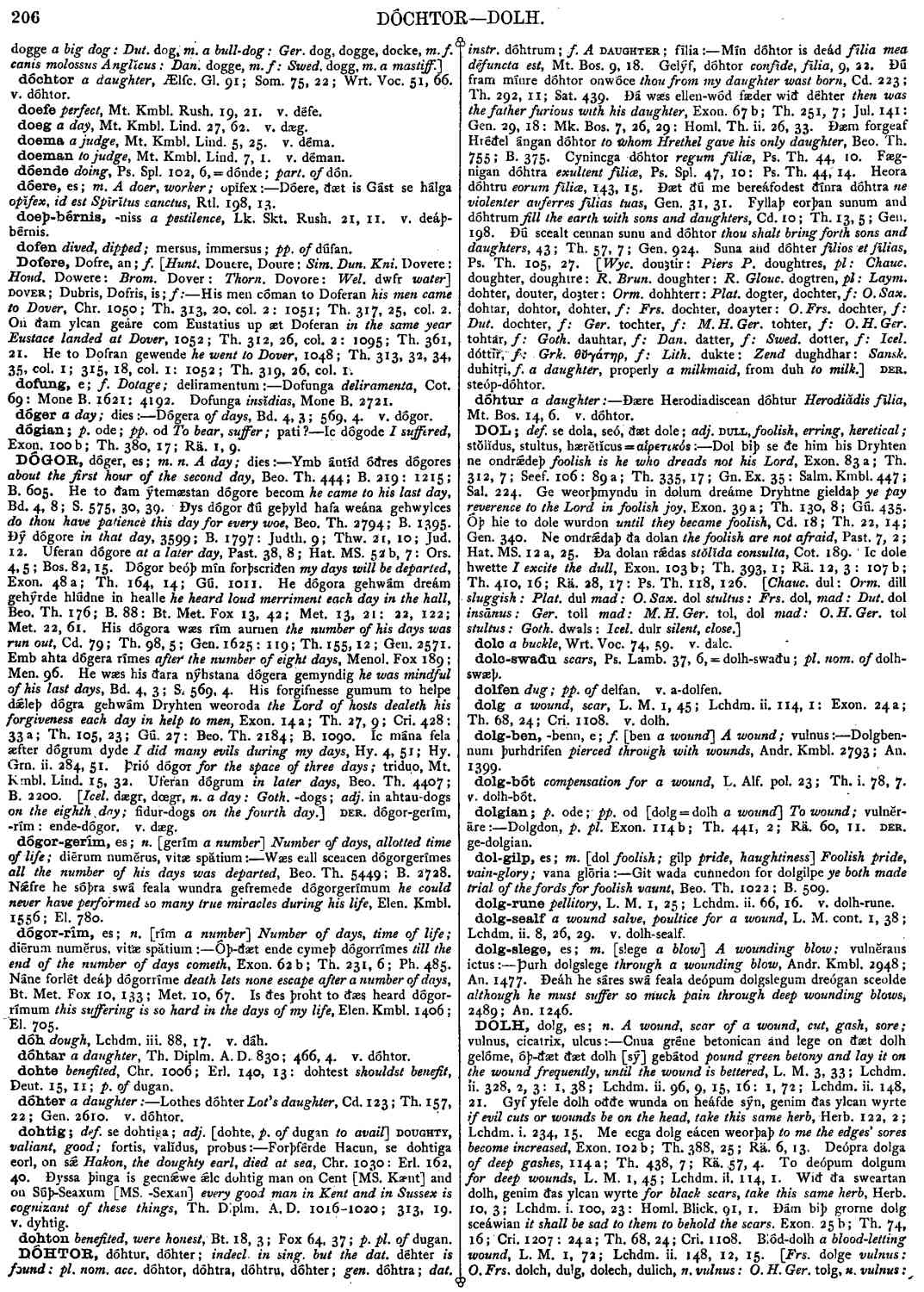DÓGOR
- noun [ masculine ]
- adjective
-
Ymb ántíd óðres dógores
about the first hour of the second day,
- Beo. Th. 444; B. 219: 1215; B. 605.
-
He to ðam ýtemæstan dógore becom
he came to his last day,
- Bd. 4, 8; S. 575, 30, 39.
-
Ðys dógor ðú geþyld hafa weána gehwylces
do thou have patience this day for every woe,
- Beo. Th. 2794; B. 1395.
-
Ðý dógore
in that day,
- 3599; B. 1797: Judth. 9; Thw. 21, l0; Jud. 12.
-
Uferan dógore
at a later day,
- Past. 38, 8; Hat. MS. 52 b, 7: Ors. 4, 5; Bos. 82, 15.
-
Dógor beóþ mín forþscriðen
my days will be departed,
- Exon. 48 a; Th. 164, 14; Gú. 1011.
-
He dógora gehwám dreám gehýrde hlúdne in healle
he heard loud merriment each day in the hall,
- Beo. Th. 176; B. 88: Bt. Met. Fox 13, 42; Met. 13, 21: 22, 122; Met. 22, 61.
-
His dógora wæs rím aurnen
the number of his days was run out,
- Cd. 79; Th. 98, 5; Gen. 1625: 119; Th. 155, 12; Gen. 2571.
-
Emb ahta dógera rímes
after the number of eight days,
- Menol. Fox 189; Men. 96.
-
He wæs his ðara nýhstana dógera gemyndig
he was mindful of his last days,
- Bd. 4, 3; S. 569, 4.
-
His forgifnesse gumum to helpe dǽleþ dógra gehwám Dryhten weoroda
the Lord of hosts dealeth his forgiveness each day in help to men,
- Exon. 14 a; Th. 27, 9; Cri. 428: 33 a; Th. 105, 23; Gú. 27: Beo. Th. 2184; B. l090.
-
Ic mána fela æfter dógrum dyde
I did many evils during my days,
- Hy. 4, 51; Hy. Grn. ii. 284, 51.
-
Þrió dógor
for the space of three days;
triduo,- Mt. Kmbl. Lind. 15, 32.
-
Uferan dógrum
in later days,
- Beo. Th. 4407; B. 2200.
Bosworth, Joseph. “DÓGOR.” In An Anglo-Saxon Dictionary Online, edited by Thomas Northcote Toller, Christ Sean, and Ondřej Tichy. Prague: Faculty of Arts, Charles University, 2014. https://bosworthtoller.com/7758.
Checked: 0